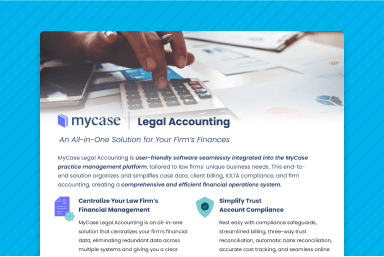Asked and Answered: Do You Belong to Bar Associations? Why or Why Not?
Bar associations have always been an integral resource for the legal community, offering a host of benefits and value for their members. However, in recent years, the increasing prevalence and use of social media and online resources have supplanted some of the functions that, for decades past, were the sole province of bar associations.
For example, bar association events used to be one of the best places to engage in professional networking, but these days lawyers have the option to connect and interact online at their convenience. Similarly, lawyers have historically relied on bar associations to provide the educational seminars needed to maintain their law licenses, whereas in 2018 CLE credits can be obtained for free or at low cost online 24/7, day or night.
Unfortunately, this trend of lawyers using online resources has negatively impacted bar associations across the board, resulting in reduced membership levels and a declining interest in their offerings. Bar associations, while still valuable to lawyers, nevertheless struggle to prove their relevance in the 21st century legal landscape.
Because this presents such an interesting issue, I figured it was worthy subject for one of my 2-part blog post series. I’ll be posting the first blog post of this series here on the MyCase blog and then will post Part 2 over at the Above the Law blog.
For Part 2 of this series, I’ll try to determine what might encourage increased membership at bar associations by asking my colleagues what services and resources they think bar associations should be offering but aren’t. For this post, the first in the 2-part series, I asked my colleagues on social media the following question:
Do you belong to any bar associations? Why or why not?
A number of themes consistently emerged in the responses. First there were those who have always found bar association memberships to be valuable throughout their careers. Their reasons varied, but the benefits received from their bar membership were many.
For Stephen Terrell, an Indiana attorney, his membership is useful to him for a number of reasons:
A sense of professionalism, contributing to the profession, friendship, professional network, resources, benefits including research tools— to name a few.
Two New York solo attorneys also shared that their many bar memberships were well worth the price they paid for entry. For example, Sarah Gold explained that she was active in three different bar associations – the New York State Bar Association, the Albany County Bar Association, and the American Bar Association – and each has supported her solo practice in a multitude of ways:
We’re a voluntary state, and I’m a solo, so I pay my way on this. However, it’s been invaluable to me in building my network, finding my way as a solo, and providing an outlet to give back to my profession. The ABA has paid for itself with the discount on my newest laptop for the office.
Anthony Colleluori shared that his many bar memberships over the course of his career have expanded his referral network and his legal knowledge:
I’ve belonged to the Nassau County Bar Association, the New York State Bar Association, the American Bar Association, NACDL, NYSACDL, the Colombian Lawyers Association, and the Nassau County Criminal Court Bar. The experience and combined knowledge was the draw, the relationships and people were the gift, and the recognition, personal growth, and practice development were the results. You can get a lot of that now through social media, but…it takes much longer. Sure it’s convenient to get up and speak to you colleagues while in your bathrobe, but it takes forever…(and) it is hard to stand out online. All in all, the bar associations have fed my thirst for knowledge, fed my interests in all areas of law and practice management, and fed my practice with good paying clients.
A number of my colleagues replied that they belonged to their state bar associations because they had no choice: it was necessary in order to maintain their law license. For example, Rick Georges, a Florida attorney and blogger at Future Lawyer explained:
I belong to the Florida Bar. But I have to if I want to practice law. But, I am a member of some”voluntary” associations also.
A number of lawyers indicated that they would like to participate in bar associations, but did not do so due to the cost. For example, a New York Assistant District Attorney described her situation as follows:
It’s too expensive, I work for the government so the fee based on my years of practice would be way too much. I would love to belong to the local one as well as the women’s one but it’s just too much.
Another attorney, a New York Assistant Public Defender, shared that she found bar memberships to be both cost prohibitive and lacking in value:
I’m a government attorney and my employer doesn’t pay. And, because of my position, I don’t need a membership for decreased health insurance, referrals, CLEs etc.
And last but not least, an Ohio attorney, Don Conley, offered a very unfortunate and eye opening explanation for his decision not to join his local bar association:
I became a lawyer in 1973. At that time the local bar association held its meetings at a private club that didn’t allow blacks and women as members. I suppose I could have gotten in for the purpose of the meetings but I declined to do so. That changed after a few years but I never felt inclined to participate.
The good news is that in some ways, bar associations have changed with the times. And bar executives continue to try to keep pace with the effects of technology on the practice of law – and on the delivery of their services to their members. It’s undoubtedly a challenge, in part because the needs of their members and potential members are changing.
That’s why feedback from lawyers is so important. To that end, Part 2 of this series will focus on input from attorneys about how bar associations could better serve them. So keep an eye out on social media so that you can provide your feedback and then make sure to head over to Above the Law next week to read that post.


